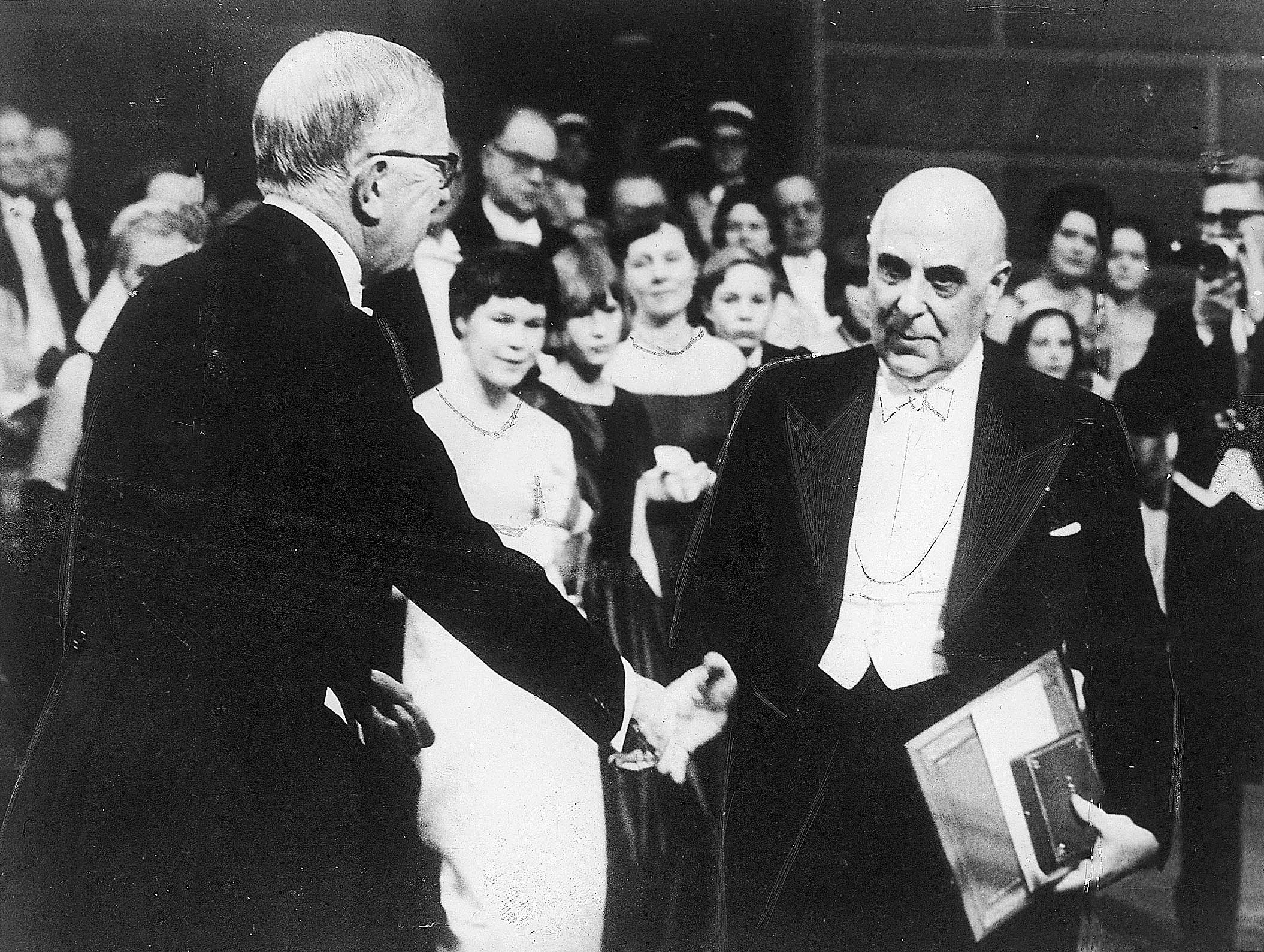
Stories Talk | Presentation Skills and Effective Storytelling
Stories Talk | Presentation Skills and Effective Storytelling
By Mia Kollia
Translated by Alexandros Theodoropoulos
Georgios Seferiadis, as his real name was, was born on February 29, 1900, in Smyrna. He was the eldest of the three children of lawyer Stylianos Seferiadis and Despina Tenekidi.
In 1906 he started his studies in Smyrna but with the outbreak of the Great War in 1914, his family immigrated to Athens. After graduating from Athens High School, he went with his mother and siblings to Paris, where his father worked as a lawyer. There he enrolled in the Law School of Sorbonne University, from which he graduated with a doctorate in 1924. The years he stayed in Paris coincided with the modernist movement in its heyday, something that proved decisive in shaping his poetic style and idiosyncrasy.
In February 1925 he returned to Athens and in 1927 he was appointed to the diplomatic service of the Ministry of Foreign Affairs. During World War II, Seferis followed the Free Greek Government into exile in Crete, Egypt, South Africa and Italy, and returned to Athens in 1944. He continued to work at the Ministry of Foreign Affairs and served in diplomatic positions in Ankara and London, where he stayed until his retirement in 1962. Meanwhile, on April 10, 1941, he married Maro Zannou in Plaka, Athens, but they never had children.
In 1931, Giorgos Seferis made his debut in Greek literature with the poetry collection "Strofi", which instantly aroused the interest of the literary community of Athens and gained great importance over time, managing to transform Greek poetry from the traditional type to a more modern writing style.
His established poetry begins with the collection "Novel" (1935), which consists of 24 poems. In this work we see the symbols that compose the poetic mythology of Seferis: the journey, the stones, the marbles, the statues, the sea etc. "Sterna", "Exercise Notebook", the "Deck Diary" (A ', B' and C ') and "Kichli" are just some of the most important works of the great poet; works that people have been reading throughout the years, set to music and sung to this day.
Since the 1950s, Seferis' work has been published and acknowledged overseas. As a result, he was awarded the Nobel Prize in Literature in December 1963; "for his wonderful lyrical style, which is inspired by a deep sense of the Greek cultural ideal", as mentioned in the reasoning of the Swedish Academy.
Thus he became the first Greek to win this great prize. In his speech at the Nobel Prize, he said: "… I belong to a small country, a stone cape in the Mediterranean, which has no other good than the struggle of its people, the sea, and the light of the sun. Our place is small, but our culture is huge and the thing that characterises it is that it was delivered to us without interruption. The Greek language has never stopped being spoken. It went through alterations, as it happens with everything alive, but it hasn’t presented any gap…".
In the ceremony he didn’t mention himself at all. On the contrary, he chose to refer to his great colleagues Dionysios Solomos, Andreas Kalvos, Kostis Palamas, Konstantinos P. Cavafy, Angelos Sikelianos and Makrygiannis, who, as he said, made him what he was.

Giorgos Seferis had been a regular contributor to the BBC since the early 1950s, when he served as a consultant at the Greek Embassy in London. Through the radio, in March 1969, he castigated the Greek military dictatorship; "it is a state of obligatory sleep, where all the spiritual values we managed to keep alive with pain and hardships also go to be submerged in the swampy standing waters," he said among other things.
The great poet spent the last years of his life away from publicity. In 1971 he was admitted to hospital for surgery on the small intestine. The operation was not successful and after complications he passed away on September 20 of that year. Two days later, his funeral was turned into a rally against the military junta, with people singing his prohibited work "Denial", with music by Mikis Theodorakis.
On the secret seashore
white like a pigeon
we thirsted at noon;
but the water was brackish.
On the golden sand
we wrote her name;
but the sea-breeze blew
and the writing vanished.
With what spirit, what heart,
what desire and passion
we lived our life; a mistake!
So we changed our life.
#HisStory